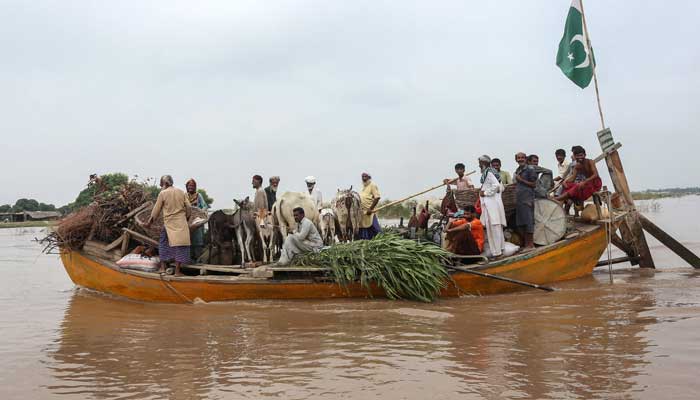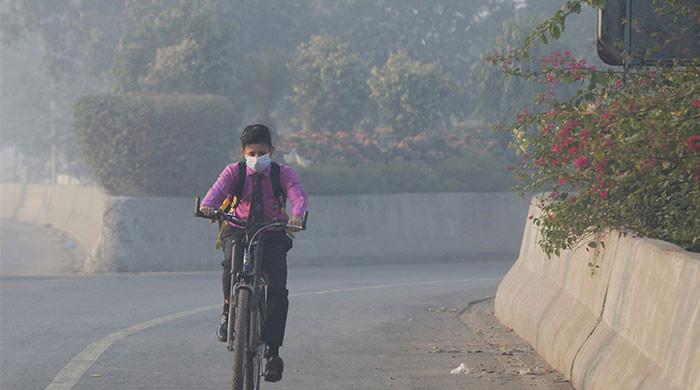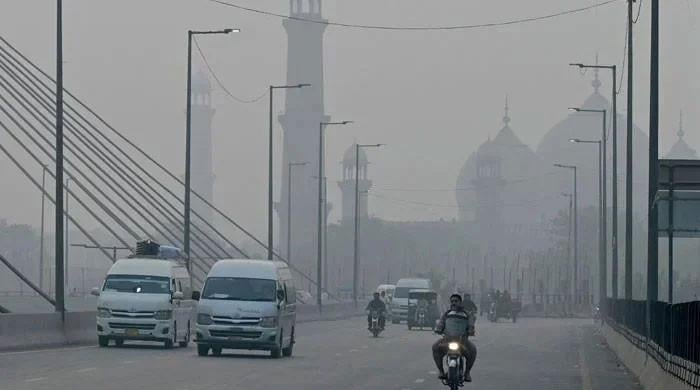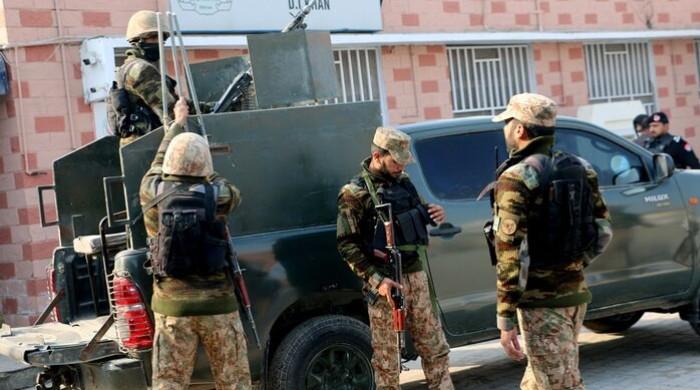Sindh fears over 1.6m people at risk amid flood threat
Situation doesn't require emergency measures such as seeking army assistance, says minister
August 30, 2025

- Floodwaters may enter Sindh by September 2 or 3.
- Guddu barrage water outflow at 351,000 cusecs.
- Sukkur barrage discharging 289,000 cusecs currently.
KARACHI: Sindh's Senior Minister Sharjeel Inam Memon has warned that as many as 1.6 million people across 1,657 villages could be affected if floodwaters enter the province in the coming days.
Speaking to the media on Saturday, Memon said the provincial government had activated its machinery and was taking advance measures to deal with the situation. Ministers are on the ground, while the district administration is also actively engaged, he added.
The minister's remarks come as vast swathes of land have been left inundated in floodwaters in Punjab where at least 30 people have been killed and more than 1.5 million have been affected due to swelling Sutlej, Chenab and Ravi rivers due to torrential rains and water discharge by India.
With efforts underway to move people to safe locations, as many as 481,000 people have been evacuated from flood-hit areas in the province.
Meanwhlie, the Sindh government, according to Memon, has earmarked 551 points for relief camps, with 192 rescue boats kept ready. Around 273,000 families and 167 union councils are likely to be impacted if water levels rise further. He said floodwaters could enter Sindh between 2 and 3 September.
Memon said the Guddu barrage was currently discharging 351,000 cusecs of water, Sukkur 289,000 cusecs, and Kotri 251,000 cusecs. Guddu has a capacity of 1.2 million cusecs, Sukkur 900,00 and Kotri 600,000 cusecs, he explained. At present, the data indicate no alarming situation, and if no further heavy rains occur, conditions may remain under control.
The senior minister emphasised that there was no immediate threat to urban centres and urged against speculation. The situation, he stressed, did not require emergency measures such as seeking army assistance, as the provincial government was self-sufficient and managing the crisis.
Memon also said that people living in katcha (riverine) areas were being sensitised, as they were the most aware of the water’s behaviour. "When the water level rises, residents voluntarily move to pucca (settled) areas or stay with relatives," he said.
He further noted that 300 separate camps had been set up for livestock, while 15 districts of Sindh situated along the riverbanks were under close watch.
"Pakistan is among the countries most affected by climate change. Construction must never take place within riverbeds," Memon remarked, adding that information on water inflows and outflows at barrages would be shared every three hours.











